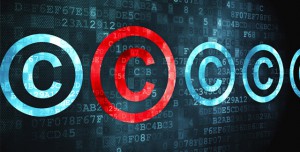June 1, 2015
 Florida has recently passed a bill to combat online piracy. The law seeks to bring transparency to online business transactions by mandating that websites and online services that publish or transmit “substantial” portions of commercial recordings or audiovisual works, disclose and display certain identifying contact information on their website. The anti-piracy law will become effective on July 1, 2015.
Florida has recently passed a bill to combat online piracy. The law seeks to bring transparency to online business transactions by mandating that websites and online services that publish or transmit “substantial” portions of commercial recordings or audiovisual works, disclose and display certain identifying contact information on their website. The anti-piracy law will become effective on July 1, 2015.
What does the law mandate and who must comply with its requirements?
The law has potentially far reaching effects, as it applies to online services that are available in Florida. The scope of the law is defined in terms of the location of the users of the online service, not the location of the website operators. Therefore, companies outside of the State of Florida will have to comply with the law. In order to be compliant with the law’s mandates, any business that falls within the statute’s reach must “conspicuously disclose” the following information:
- Its true and correct name;
- Its physical address; and
- Its telephone number or email address.
According to the language of the anti-piracy statute, the above information must be displayed on the website or online service in a location where it can be readily accessible to a consumer visiting the site or online service, including any of the following:
- The landing page, home page, or initial launch screen;
- An “about us” or “contact us” tab;
- Another information page; or
- Any other area of the site or service that is otherwise used to display contact information to consumers.
While it is unclear at this point how the law will be interpreted by the courts, it will likely be deemed unacceptable to place the identifying contact information solely within the applicable website’s Terms and Conditions, given the overall intent of providing conspicuous disclosure of information to consumers. Importantly, the law also contains guidance concerning enforcement of the mandates. The law provides for a 14-day cure period after notification of violation is given to the allegedly offending company. If the company fails to cure within that period, the law provides a private right of action (to owners, licensees, assignees and authorized agents of recordings and audiovisual works) to seek injunctive relief against an offending company. In addition, the statute provides for the recovery of attorney fees to prevailing parties.
Anti-Piracy Best Practices to Cover Your Bases
While the law expressly excludes application to ISPs and mobile radio services, it is broad enough to apply to a wide range of online businesses that distribute media content in one variety or another. For the minimal effort required to provide the necessary disclosures, website operators can avoid potential exposure under this new law.
If you are interested in learning more about this topic or pursuing an Internet marketing venture, please e-mail us at info@kleinmoynihan.com or call us at (212) 246-0900.
The material contained herein is provided for information purposes only and is not legal advice, nor is it a substitute for obtaining legal advice from an attorney. Each situation is unique, and you should not act or rely on any information contained herein without seeking the advice of an experienced attorney.
Attorney Advertising
Similar blog posts:
Copyright Alert System is Launched
Rules Governing Banks Privacy Disclosures to Consumers Updated



